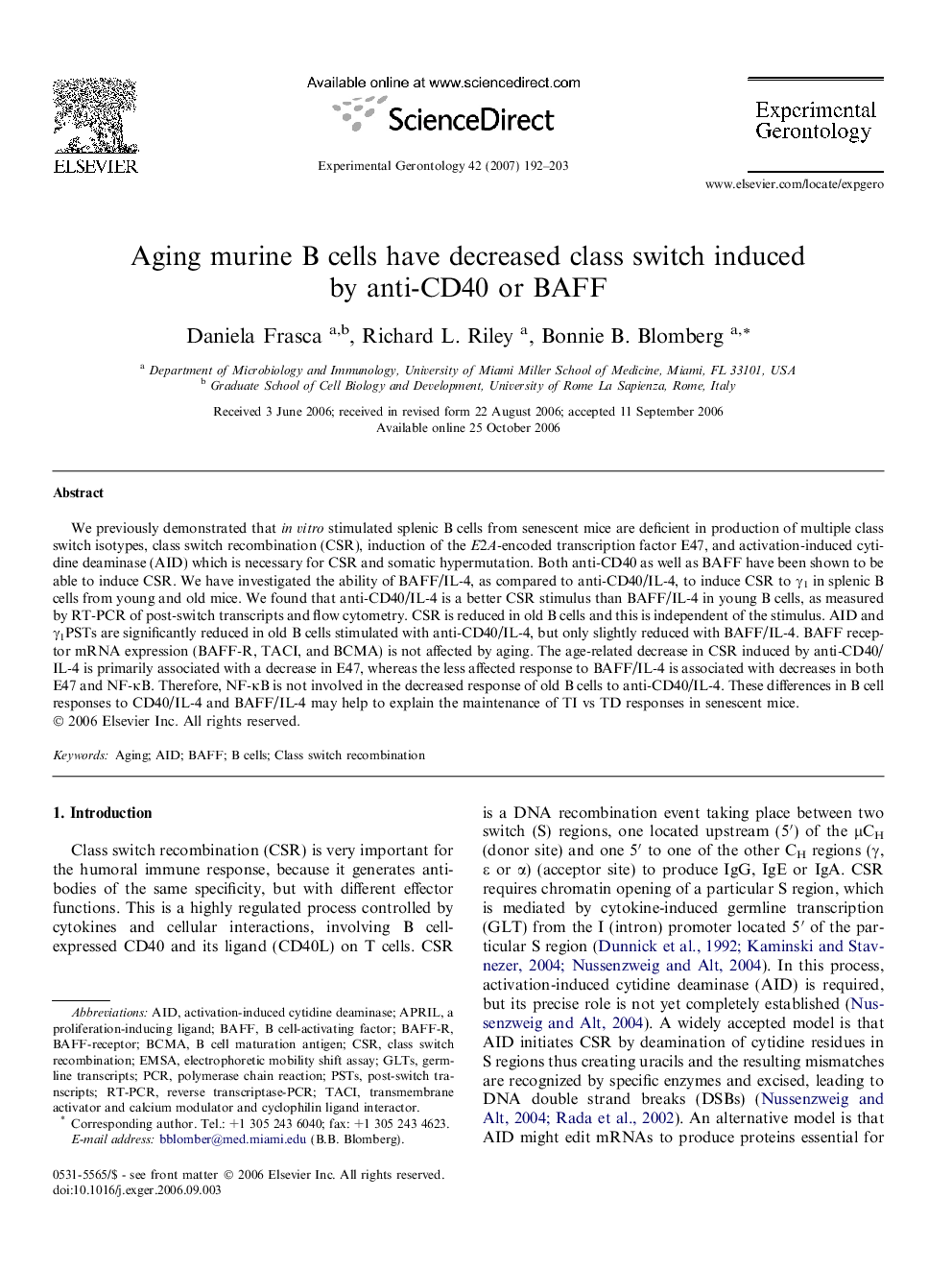| Article ID | Journal | Published Year | Pages | File Type |
|---|---|---|---|---|
| 1907191 | Experimental Gerontology | 2007 | 12 Pages |
We previously demonstrated that in vitro stimulated splenic B cells from senescent mice are deficient in production of multiple class switch isotypes, class switch recombination (CSR), induction of the E2A-encoded transcription factor E47, and activation-induced cytidine deaminase (AID) which is necessary for CSR and somatic hypermutation. Both anti-CD40 as well as BAFF have been shown to be able to induce CSR. We have investigated the ability of BAFF/IL-4, as compared to anti-CD40/IL-4, to induce CSR to γ1 in splenic B cells from young and old mice. We found that anti-CD40/IL-4 is a better CSR stimulus than BAFF/IL-4 in young B cells, as measured by RT-PCR of post-switch transcripts and flow cytometry. CSR is reduced in old B cells and this is independent of the stimulus. AID and γ1PSTs are significantly reduced in old B cells stimulated with anti-CD40/IL-4, but only slightly reduced with BAFF/IL-4. BAFF receptor mRNA expression (BAFF-R, TACI, and BCMA) is not affected by aging. The age-related decrease in CSR induced by anti-CD40/IL-4 is primarily associated with a decrease in E47, whereas the less affected response to BAFF/IL-4 is associated with decreases in both E47 and NF-κB. Therefore, NF-κB is not involved in the decreased response of old B cells to anti-CD40/IL-4. These differences in B cell responses to CD40/IL-4 and BAFF/IL-4 may help to explain the maintenance of TI vs TD responses in senescent mice.
